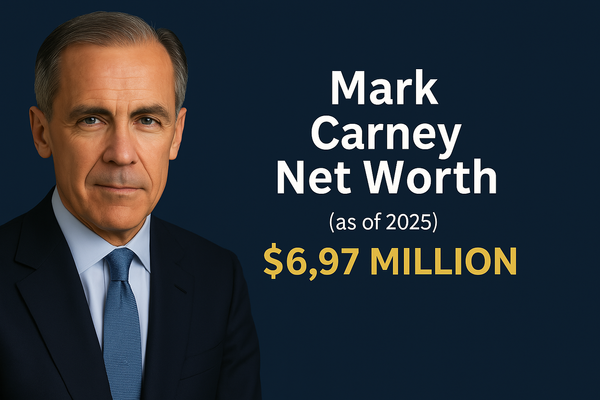Pierre Poilievre Platform Explained: What His Economic Plans Mean for Canadians

Economic uncertainty and rising living costs have pushed Canadians to closely examine Pierre Poilievre's platform and its potential impact on their financial future.
As the Conservative Party leader presents his vision for Canada's economy, his policy platform represents a significant shift in approach to addressing inflation, housing affordability, and government spending. In fact, his economic plan encompasses everything from tax reforms to monetary policy changes.
This comprehensive analysis breaks down Poilievre's economic policies, examining his proposed solutions for Canada's fiscal challenges. We'll explore his core economic principles, infrastructure development plans, and overall strategy for managing the nation's finances.
Understanding Poilievre's Economic Vision
Pierre Poilievre's economic vision stems primarily from the principles of Milton Friedman, the influential Chicago School economist [1]. His approach centers around a small-government, free-market philosophy that aims to reduce federal control over economic activities.
Free market philosophy and influences
Poilievre's economic thinking reflects his long-standing commitment to free-market principles. At age 20, he articulated a vision emphasizing that "a dollar left in the hands of consumers and investors is more productive than a dollar spent by a politician" [2]. His philosophy specifically focuses on limiting government intervention and promoting private sector growth. Furthermore, he advocates for what he calls a "bottom-up, free-enterprise agenda" rather than "top-down state capitalism" [3].
Key economic principles and goals
The Conservative leader's economic principles revolve around three main pillars. First, he advocates for substantial tax reforms, including the creation of a tax reform task force within 60 days of taking power [3]. Second, he proposes implementing a "Pay-As-You-Go Law" that would cap federal spending at budgeted amounts [4]. Third, he aims to reduce bureaucracy and eliminate what he terms "corporate welfare" to large corporations [5].
Comparison with previous Conservative platforms
Unlike previous Conservative approaches, Poilievre's platform specifically targets what he calls "gatekeepers" in the economy [6]. Additionally, his economic vision differs from traditional Conservative platforms by combining fiscal conservatism with economic populism [7]. While maintaining core conservative principles of limited government, his approach particularly emphasizes addressing cost-of-living issues and housing affordability, marking a departure from previous Conservative leaders who focused primarily on deficit reduction [8].
Core Economic Policy Proposals
At the core of Pierre Poilievre's economic platform lies a trio of substantial policy reforms aimed at reshaping Canada's fiscal landscape.
Tax reform and spending cuts
Poilievre's tax strategy centers on reversing the Liberal government's capital gains tax changes, which would have increased the inclusion rate to two-thirds for corporations and trusts [9]. This reversal aims to prevent an estimated loss of 414,000 jobs [9]. Moreover, he proposes a "Pay-As-You-Go Law" requiring the government to find one dollar in savings for each new dollar spent [10].
Regulatory changes and deregulation
The Conservative leader advocates for substantial deregulation, especially in natural resource development. His platform calls for accelerating mine approvals, noting that the current 18-year approval process needs streamlining [3].
Subsequently, he plans to boost Western Canada's liquefied natural gas exports by following the U.S. model of expedited plant approvals [3].
Monetary policy approach
Poilievre's monetary policy focuses on controlling both consumer price inflation and asset price inflation [11]. Under his leadership, the Bank of Canada would maintain a strict 2% inflation target [12]. Consequently, he proposes expanding the auditor general's oversight of the central bank [13]. His platform also rejects the Bank of Canada's digital currency initiative, arguing it could lead to increased government surveillance of financial transactions [13].
The platform aims to address rising costs, with Poilievre highlighting that annual interest payments on accumulated debt will approach CAD 97.54 billion by decade's end [3]. Therefore, his fiscal strategy includes cutting what he terms "corporate welfare," estimated at CAD 55.73 billion annually in federal support [3]. His approach also involves reducing foreign aid and consultant spending to lower the deficit, which currently stands at CAD 55.73 billion [10].
Infrastructure and Resource Development
Poilievre's infrastructure and development strategy centers on removing what he terms "gatekeepers" from Canada's housing and resource sectors.
Housing market reforms
A cornerstone of Poilievre's housing strategy involves eliminating the GST on new homes priced under CAD 1.39 million [14]. This tax cut aims to deliver significant savings:
- Save homebuyers CAD 55,734 on a CAD 1.11 million house [14]
- Spur construction of 30,000 additional homes annually [14]
- Reduce annual mortgage payments by CAD 3,065 [15]
Notably, this plan would be funded by eliminating the Housing Accelerator Fund and Housing Infrastructure Fund, programs worth CAD 5.57 billion and CAD 8.36 billion respectively [14].
Natural resource sector plans
The Conservative leader advocates for accelerating resource development across Canada. His strategy primarily focuses on speeding up mine approvals, noting that current processes can take up to 25 years [16]. Besides, Poilievre pledges to expand lumber harvesting and port capacity to boost northern British Columbia's economy [16].
Essentially, his resource development approach includes a novel First Nations revenue-sharing program. Under this plan, Indigenous communities would collect 50% of federal taxes from industrial activities on their lands [17]. This initiative aims to provide First Nations with direct control over resource development benefits [18].
Infrastructure investment strategy
Although Poilievre opposes increasing municipal infrastructure funding [19], his platform introduces a performance-based approach. Cities must increase housing starts by 15% annually to receive full federal funding [6]. Those exceeding this target would receive additional funding, chiefly CAD 13,933 for each extra home built [20].
Nevertheless, municipalities failing to meet these targets would face proportional funding reductions [6]. The strategy also mandates high-density housing near transit stations as a condition for receiving federal transit funding [6]. This approach aims to create more affordable housing options for students, seniors, and low-income families [6].
Fiscal Management Strategy
The cornerstone of Pierre Poilievre's fiscal strategy rests on a structured approach to managing Canada's financial future through targeted spending controls and revenue optimization.
Deficit reduction approach
Poilievre's deficit reduction strategy centers on his proposed "Pay-As-You-Go Law", requiring the government to find one dollar in savings for each new dollar of spending [21]. This approach primarily aims to address the current deficit of CAD 55.73 billion [10]. Simultaneously, the plan includes exemptions for national emergencies, wars, pandemics, and natural disasters [21].
Government spending priorities
The Conservative leader's spending strategy focuses on systematic cuts across multiple sectors:
- Reducing bureaucracy and consultant contracts
- Eliminating what he terms "wasteful foreign aid"
- Cutting corporate welfare to large corporations
- Streamlining military procurement processes [22]
Presently, the federal government faces interest payments of CAD 64.79 billion to service existing debt [23]. Accordingly, Poilievre's platform emphasizes the need to control spending, as debt servicing costs are projected to exceed health care expenditures [4].
Revenue generation plans
The revenue strategy undoubtedly diverges from the current government's approach, with Poilievre pledging to reverse the capital gains tax changes that would have generated CAD 24.24 billion over five fiscal years [5]. Similarly, his platform proposes redirecting federal tax revenues from resource projects directly to First Nations communities [24]. This innovative approach aims to boost economic development while maintaining fiscal responsibility.
The fiscal plan similarly addresses provincial considerations, with Ontario estimating its portion of proposed changes could affect CAD 1254.02 million in personal income taxes and CAD 3.34 billion in corporate taxes between 2024-2025 and 2026-2027 [25]. Under this framework, Quebec would experience an impact of CAD 3.48 billion over five fiscal years [25].
Conclusion
Pierre Poilievre's economic platform represents a significant shift toward free-market principles and reduced government intervention. His comprehensive approach combines traditional Conservative values with solutions for current challenges like housing affordability and inflation control.
Through targeted initiatives such as the "Pay-As-You-Go Law" and elimination of specific taxes, Poilievre aims to reshape Canada's fiscal landscape. These proposals could potentially alter how Canadians interact with housing markets, natural resources, and government services.
The success of these economic policies would largely depend on several factors, particularly the ability to implement substantial regulatory changes while maintaining essential services. Though his platform promises significant reforms, careful consideration must be given to both immediate benefits and long-term implications for Canada's economic stability.
Canadians face important choices about their economic future as they evaluate these proposed changes. Whether these policies achieve their intended goals of reducing living costs and promoting economic growth remains a critical question that will shape discussions about Canada's financial direction.
References
[1] - https://www.policyalternatives.ca/news-research/poilievres-economic-populism-masks-the-same-old-failed-conservative-policies/
[2] - https://www.bbc.com/news/articles/c9dpde9dxp0o
[3] - https://www.thestar.com/business/opinion/can-canadians-trust-pierre-poilievre-with-the-economy-here-are-some-of-the-major-changes/article_2f546ea8-6eb5-11ef-889c-e35aa8ab45ab.html
[4] - https://ici.radio-canada.ca/rci/en/news/2066068/poilievre-blasts-budget-wont-commit-to-keeping-new-social-programs-like-pharmacare
[5] - https://www.investmentexecutive.com/news/industry-news/conservatives-would-ax-proposed-capital-gains-tax-changes-poilievre/
[6] - https://www.cbc.ca/news/politics/poilievre-housing-plan-1.6966907
[7] - https://thehub.ca/2024/03/12/ginny-roth-poilievre-still-pro-growth/
[8] - https://www.vox.com/politics/24140480/canada-pierre-poilievre-conservative-party-populism-democracy
[9] - https://globalnews.ca/news/10961930/pierre-poilievre-capital-gains-tax-pledge/
[10] - https://www.thestar.com/politics/pierre-poilievre-vows-he-would-balance-the-federal-budget-as-soon-as-possible-but-doesnt/article_0cf4f384-7ab6-11ef-ac5d-17f0dc0212b8.html
[11] - https://financialpost.com/opinion/william-watson-pierre-poilievre-monetary-policy
[12] - https://www.cbc.ca/news/politics/poilievre-inflation-bank-of-canada-1.6700691
[13] - https://www.cbc.ca/news/politics/poilievre-bank-of-canada-audit-1.6433860
[14] - https://www.cbc.ca/news/politics/poilievre-gst-new-homes-cut-1.7365339
[15] - https://globalnews.ca/news/10834046/pierre-poilievre-housing-plan/
[16] - https://ckpgtoday.ca/2024/02/02/poilievre-wants-to-dig-mines-harvest-more-lumber-to-create-more-opportunities-for-northern-b-c-if-elected/
[17] - https://www.theglobeandmail.com/politics/article-poilievre-proposes-plan-for-first-nations-to-collect-taxes-from/
[18] - https://www.cbc.ca/news/politics/poilievre-first-nations-afn-1.7259828
[19] - https://www.orilliamatters.com/local-news/theyre-wasting-it-all-poilievre-rejects-municipal-calls-for-more-infrastructure-money-9888384
[20] - https://www.deeded.ca/blog/trudeaus-resignation-poilievre-housing-plan
[21] - https://www.cbc.ca/news/politics/poilievre-pay-as-you-go-budgeting-1.6497652
[22] - https://www.cbc.ca/news/politics/poilievre-armed-forces-military-nato-1.7258338
[23] - https://www.conservative.ca/fix-the-budget/
[24] - https://nationalpost.com/news/pierre-poilievre-first-nations-tax-revenue
[25] - https://www.bnnbloomberg.ca/business/2025/01/16/canadas-poilievre-promises-to-reverse-capital-gains-tax-change/


